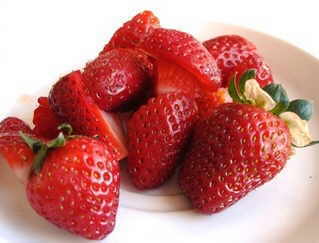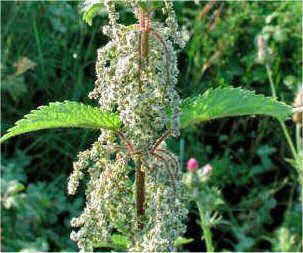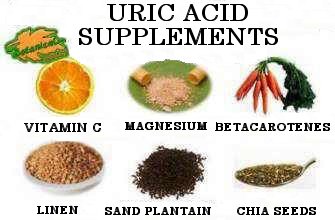Contents
- 1 Myths about whether eating fruit after eating ferments in the stomach
- 1.1 Doubt about avoiding taking fruit for dessert so that it does not ferment in the stomach
- 1.2 Myth that fruit ferments if eaten for dessert
- 1.3 Removing fruit from meals is bad health advice
- 1.4 Chinese medicine and fruit after meals
- 1.5 Why is it said that eating fruit for dessert ferments or is bad?
- 1.6 What are disassociated diets based on or that take away fruit for dessert?
- 1.7 Does eating fruit for dessert cause poor digestion?
- 1.8 Myths about fruit: summary
- 1.9 Conclusion about fruit
Myths about whether eating fruit after eating ferments in the stomach
Doubt about avoiding taking fruit for dessert so that it does not ferment in the stomach

Hello; I have been told that fruits are quick to digest and that when mixed with other foods in the stomach it makes them ferment and produce poor digestion, heaviness and gain more weight. For this reason, fruit must always be eaten alone.
* Consultation received through Botanical online Facebook page.
Myth that fruit ferments if eaten for dessert
We know the theory that “fruit ferments in the stomach” but it is totally wrong. Fruit does not ferment in the stomach, it is a false myth. With stomach pH, there are no bacteria capable of surviving and fermenting food (with very few exceptions, generally associated with a pathology).
Nor could a great fermentation take place in the few minutes or hours that the food remains in the stomach. In fact, the fermentation site for food is in the intestine and this is beneficial for the intestinal flora (microbiota).
Removing fruit from meals is bad health advice
It is becoming more and more common to hear about these types of myths. Many pseudo-dietitians recommend systematically removing fruit from meals or diet based on some other theory, which is highly misguided advice. It is a mistake to discourage eating fruit (for whatever reason) in Western society, where data shows that very little fruit and vegetables are consumed.
- There is no problem with eating fruit with meals. Many people do not eat enough fruit, which can become a real health problem.
Chinese medicine and fruit after meals

Naturopathic doctors and dietitians often recommend consuming fruits outside of main meals for energy reasons, since fruit, when “cooling”, hinders the process of digestion, which is “like a cauldron”, of “hot” nature. Since Traditional Chinese Medicine (TCM) has a long history of observation, many rely on this ancient wisdom and follow the advice to eat fruit outside of meals.
In this case, it could be a valid advice at the individual level, that is, within a dietary consultation in which the professional makes sure that the entire diet is complete and that enough vegetables are already eaten. However, what usually happens is that these tips become popular and reach the general public, who is often left with little information.
When a diet according to TCM is correctly followed, there are many changes to be made, for example as explained in this liver cleansing diet. Within this there are many other more important tips than removing fruit for dessert and in which it is convenient to influence much more. We can mention for example stress management, contact with nature, physical exercise, sleep and good rest, a very healthy diet, rich in vegetables, and of course avoid toxic substances such as alcohol.
What happens today is that, in most cases, people eat and have a very disorderly life, and in addition, they remove fruit from their meals and eat less, which undoubtedly negatively affects their health.
- It is totally FALSE that fruit ferments in the stomach if ingested after meals.
Why is it said that eating fruit for dessert ferments or is bad?
The myth of separating fruits from meals was born with dissociated diets such as Atkins, Dukan, Montignac or philosophies like those of Ann Wigmore, who argue that not eating fruit after meals will help improve digestion and maintain a low weight.
What are disassociated diets based on or that take away fruit for dessert?
All these diets have a mainly commercial purpose, since the authors became very popular with these diets (diets that bear their surname) and the sale of their books. The evolution of obesity has shown that no miracle diet works for weight loss.
In other cases, some low-calorie diets propose reducing the consumption of fruit to ingest fewer calories, which is totally ineffective for losing weight and inadvisable from a healthy point of view.
Does eating fruit for dessert cause poor digestion?
The “problem” of poor diet, of gaining weight in menopause, obesity or indigestion, is not eating fruit. There are many other possible factors that can cause flatulence or poor digestion, such as congested liver, stress, lack of chewing, excess fried, refined, bread, etc.
Eating fruit for dessert doesn’t make digestion difficult either, on the contrary, it makes it easier. The acids it contains (citric, malic…) help digest food.
Myths about fruit: summary
We summarize the main myths of fruit in the following points:
- It is good to eat fruit before, with and after meals. There is no problem with eating fruit with meals. Many people do not eat enough fruit, which can become a real health problem.
- Fruit does not ferment in the stomach, it is another widespread and baseless myth. With acidity or stomach pH, and in a few minutes or hours that food remains in the stomach, bacteria are unable to survive and cannot ferment food under these conditions. In fact, the fermentation site is the intestine and this is beneficial for the body.
- Eating fruit for dessert does not hinder digestion, on the contrary, it makes it easier. The acids it contains help digest food.
- Taking fruit with food does not cause vitamins to be lost: the vitamins are not as labile as it is said in some publications but they have a good conservation. They resist stomach acids very well until they reach the intestine.
- Poor digestion and gaining weight with fruit: Studies show that diets that eat more fruit have a lower risk of obesity, heart disease, and depression. This is also confirmed by common sense, since a fruit is not a food with many calories.
- The problem of gaining weight or poor digestion is not fruit, there are many other factors that cause these effects (stress, lack of chewing, excess fried, excess refined, bread, etc.).
Conclusion about fruit
It is not recommended to remove fruit from any food because eating fruit protects us from many diseases. Fruits also have water, soluble fiber, potassium, folate, vitamin C, and other powerful antioxidants such as chlorogenic acid, beta-carotenes, and flavonoids.
Fruits are foods that hydrate us, that provide vitamins and that are beneficial for the health of the entire digestive system.
![]() More information on fruit and food myth
More information on fruit and food myth








